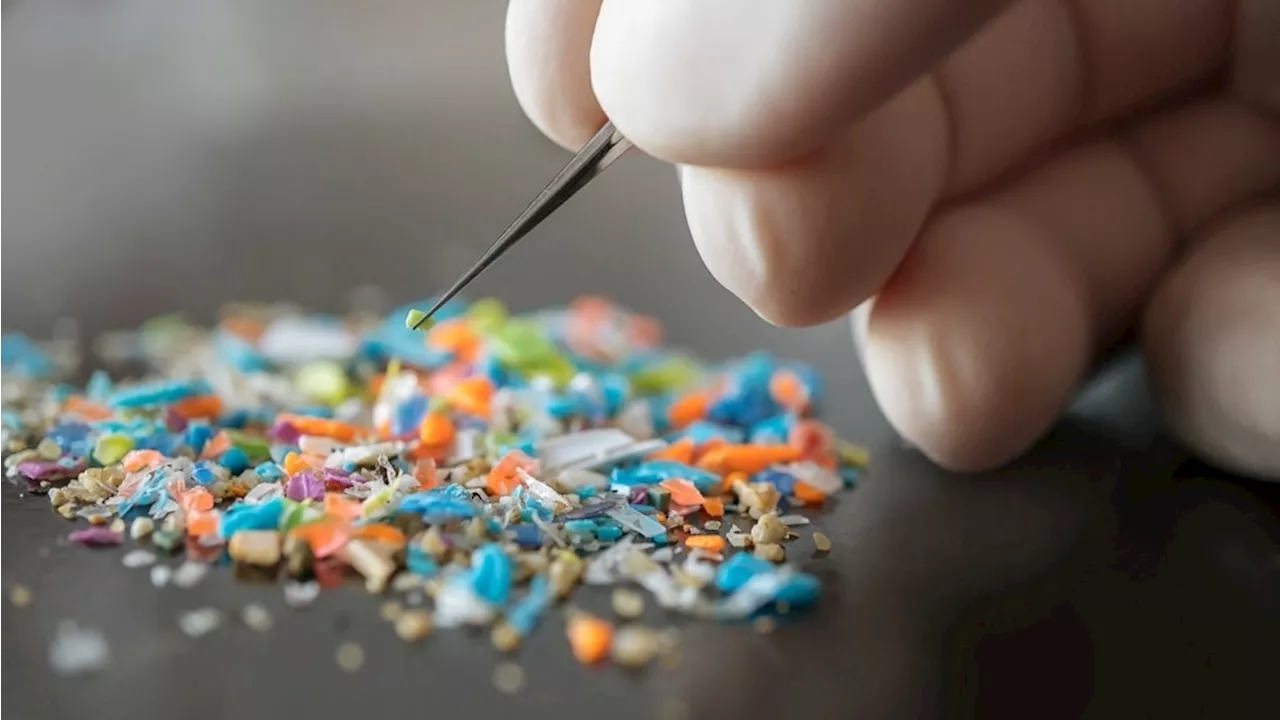Microplastics pose a threat to heart health, causing harmful changes in vascular cells and increasing the risk of cardiovascular diseases like atherosclerosis.
By Dr. Chinta SidharthanReviewed by Lily Ramsey, LLMFeb 10 2025 New research reveals that microplastics, especially those from food containers, can damage blood vessels , triggering inflammation and cellular changes linked to cardiovascular disease .
Microplastic pollution Microplastics are now an unavoidable part of our environment. These tiny plastic fragments, shed from packaging, textiles, and industrial waste, have been detected in human blood, lungs, and even the heart, and scientists are increasingly concerned about their potential health effects, particularly their impact on the cardiovascular system.
To investigate the effects of microplastics on vascular health, the researchers studied human coronary artery smooth muscle cells exposed to polyethylene and polystyrene — two common plastics used in food packaging. Migration assays were also conducted to see if microplastics altered the movement of smooth muscle cells, which is a crucial factor in the development of vascular diseases such as atherosclerosis.
Results The study found that exposure to microplastics significantly affected vascular smooth muscle cells , leading to several harmful changes in the heart. Additionally, the migration assays revealed that microplastic exposure enhanced VSMC movement, a process linked to atherosclerosis. Cells exposed to microplastics, especially degraded polystyrene, showed increased migration, suggesting a shift toward a disease-associated phenotype.
Heart Heart Disease Actin Apoptosis Atherosclerosis Blood Blood Vessels Calcification Cardiovascular Disease Cell Cell Death Cytotoxicity Inflammasome Inflammation Lungs Muscle Oxidative Stress Phenotype Pollution Programmed Cell Death Research Stress Vascular
United Kingdom Latest News, United Kingdom Headlines
Similar News:You can also read news stories similar to this one that we have collected from other news sources.
 Super bug cause identified by experts and it's something we can't avoidOxford researchers have identified a disturbing link between microplastics and antibiotic resistance in bacteria.
Super bug cause identified by experts and it's something we can't avoidOxford researchers have identified a disturbing link between microplastics and antibiotic resistance in bacteria.
Read more »
 Microplastics Found in Antarctic Snow: A Warning of Plastic's Pervasive ReachA new study reveals the presence of microplastics in the snow near remote Antarctic research camps, highlighting the global reach of plastic pollution and raising concerns about its impact on this pristine environment.
Microplastics Found in Antarctic Snow: A Warning of Plastic's Pervasive ReachA new study reveals the presence of microplastics in the snow near remote Antarctic research camps, highlighting the global reach of plastic pollution and raising concerns about its impact on this pristine environment.
Read more »
 Microplastics Found in Snow Near Antarctica's Remote CampsA new study by researchers from the British Antarctic Survey (BAS) has revealed the presence of microplastics in snow samples collected near some of Antarctica's most remote field camps. This marks the first discovery of these tiny plastic particles in such isolated locations, raising concerns about the pervasiveness of plastic pollution even in pristine environments.
Microplastics Found in Snow Near Antarctica's Remote CampsA new study by researchers from the British Antarctic Survey (BAS) has revealed the presence of microplastics in snow samples collected near some of Antarctica's most remote field camps. This marks the first discovery of these tiny plastic particles in such isolated locations, raising concerns about the pervasiveness of plastic pollution even in pristine environments.
Read more »
 Microplastics Found Accumulating in Human Brains at Alarming RatesA new study has revealed the presence of microplastics in human brains, raising concerns about their potential impact on health. Researchers found higher levels of these tiny plastic particles in brain tissue compared to other organs, with increased concentrations observed in samples from 2024 and those from individuals with dementia.
Microplastics Found Accumulating in Human Brains at Alarming RatesA new study has revealed the presence of microplastics in human brains, raising concerns about their potential impact on health. Researchers found higher levels of these tiny plastic particles in brain tissue compared to other organs, with increased concentrations observed in samples from 2024 and those from individuals with dementia.
Read more »
 Microplastics Found in Increased Amounts in Human BrainsA new study published in Nature Medicine reveals a dramatic surge in microplastics in recent human brain samples compared to those collected just eight years ago. Researchers analyzed 24 brains from individuals who died within months of January 2024 and compared them to 28 brains collected in 2016, observing a 50% increase in micro- and nanoplastics. The study also found significantly higher concentrations in brains of individuals diagnosed with dementia before death. While researchers caution against assuming a causal link between microplastics and diseases like dementia, the findings raise concerning questions about the potential impact of plastic pollution on human health.
Microplastics Found in Increased Amounts in Human BrainsA new study published in Nature Medicine reveals a dramatic surge in microplastics in recent human brain samples compared to those collected just eight years ago. Researchers analyzed 24 brains from individuals who died within months of January 2024 and compared them to 28 brains collected in 2016, observing a 50% increase in micro- and nanoplastics. The study also found significantly higher concentrations in brains of individuals diagnosed with dementia before death. While researchers caution against assuming a causal link between microplastics and diseases like dementia, the findings raise concerning questions about the potential impact of plastic pollution on human health.
Read more »
 Microplastics may accumulate in the brain at higher levels than in the kidney or liverFindings indicate rising microplastic concentrations in human brains and organs, urging deeper investigation into their health effects and distribution.
Microplastics may accumulate in the brain at higher levels than in the kidney or liverFindings indicate rising microplastic concentrations in human brains and organs, urging deeper investigation into their health effects and distribution.
Read more »
